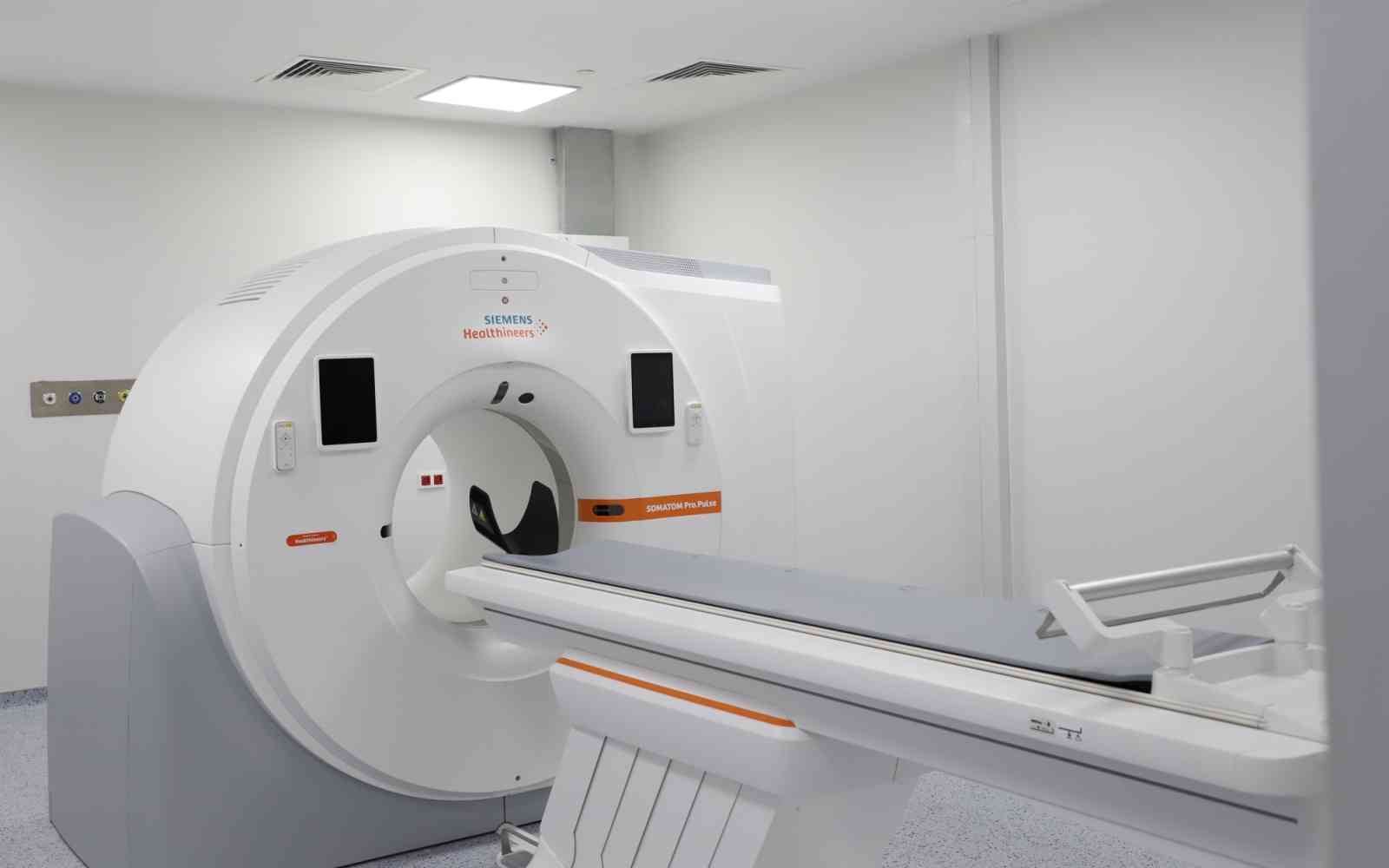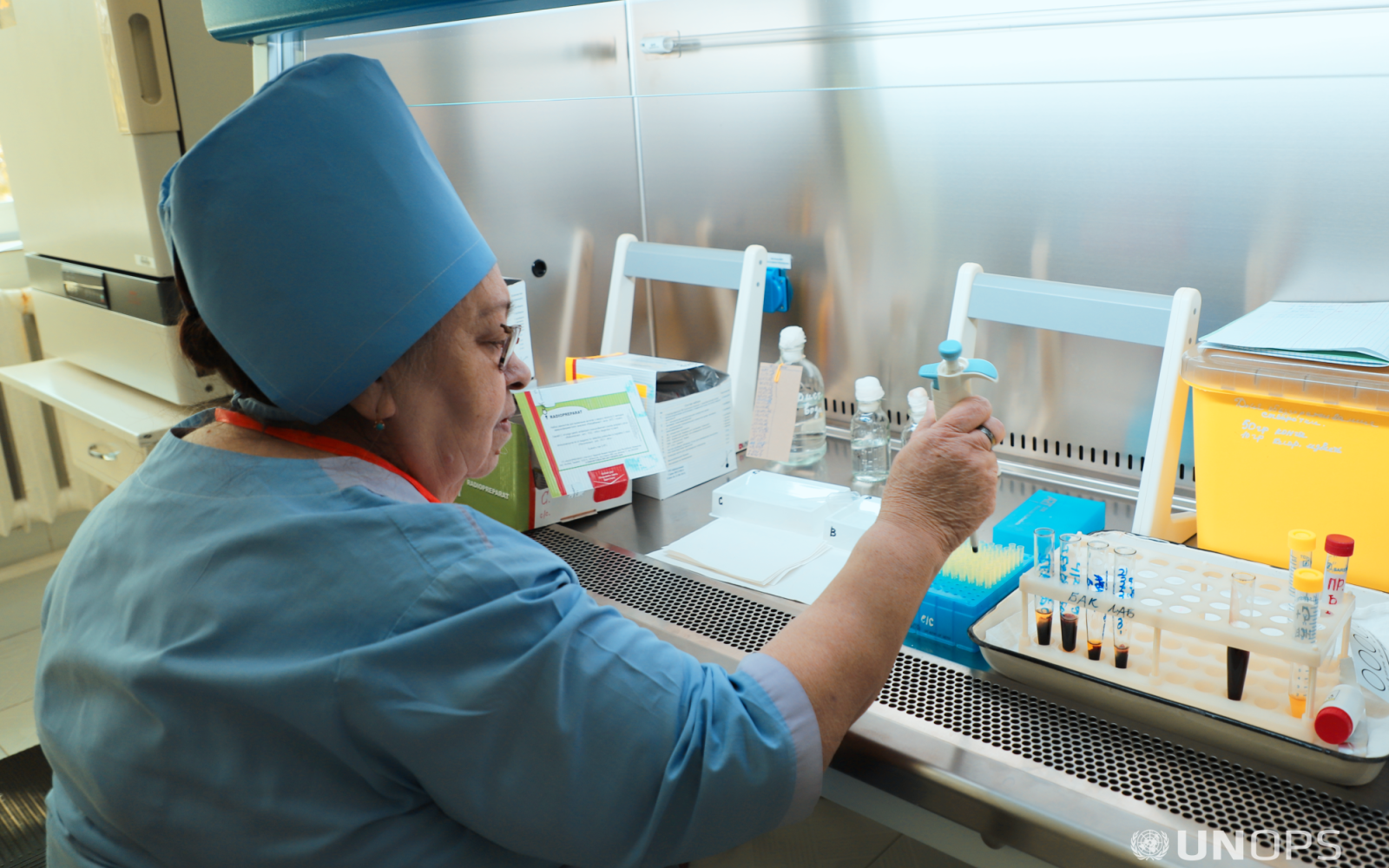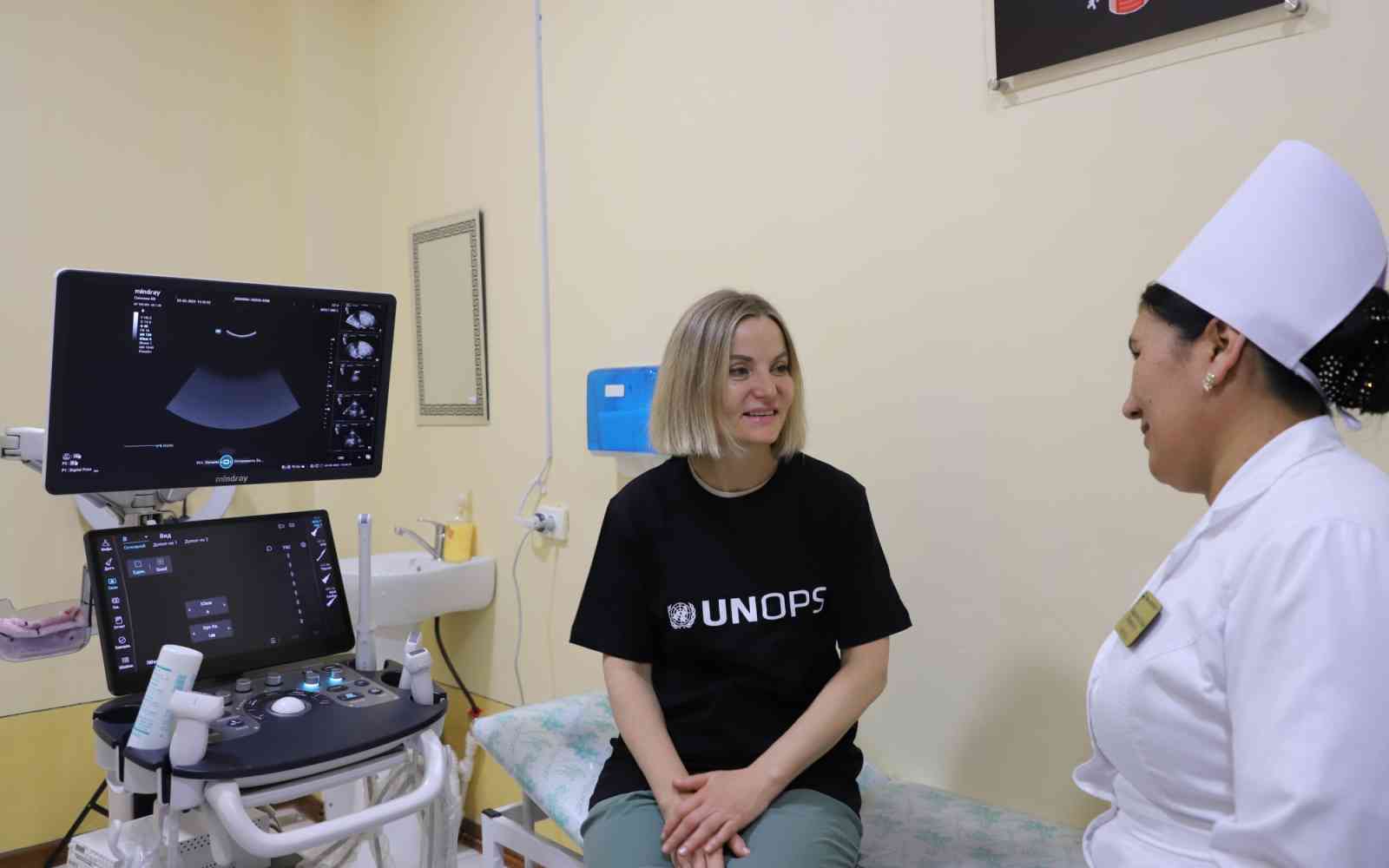The United Nations Office for Project Services (UNOPS)
Strong partnerships transform cancer care in Uzbekistan
Senior leaders from UNOPS, the Islamic Development Bank (IsDB) and the government of Uzbekistan visited a leading oncology centre in Tashkent to see first hand how a landmark project is transforming critical healthcare across the country.
UNOPS Deputy Executive Director Kirstine Damkjaer joined Uzbekistan's Minister of Health Asilbek Khudayarov and the President of the IsDB Dr. Muhammad Sulaiman Al Jasser for a high-level visit to the Republican Specialized Scientific and Practical Medical Center of Oncology and Radiology in Tashkent.
It is one of 14 health facilities upgraded through an $80 million government-led initiative – financed by the IsDB with implementation support from UNOPS – to modernize cancer care across the country. The upgraded facilities are now equipped with more than 1,700 advanced medical devices, including linear accelerators, MRI and PET/CT scanners, and digital mammography systems.
The high-level visit included a tour of the newly modernized departments – including radiotherapy, nuclear medicine and medical imaging, where specialists demonstrated the new equipment in action.
We are revolutionizing the nation’s entire oncology system. This center will deliver advanced care, expand early detection, and ensure access to life-saving treatment for more patients than ever before.
A significant milestone today at 🇺🇿 Uzbekistan’s National Oncology & Radiology Center in #Tashkent, where #IsDB President H.E. Dr. Muhammad Al Jasser joined H.E. Mr. Asilbek Khudayarov, Minister of Health, and Ms. Kirstine Damkjaer, @UNOPS Deputy Executive Director, for the… pic.twitter.com/VFHgq12Wk6
— IsDB Group (@isdb_group) September 19, 2025
“Cancer care today is about using technology to raise hope and save lives. Through this partnership, the Islamic Development Bank and the Government of Uzbekistan have brought together the collective strength of UNOPS, WHO, IAEA, and IARC to do far more than build a facility,” explained Dr. Muhammad Sulaiman Al Jasser, President of the IsDB.
For many years, cancer patients in Uzbekistan had limited access to timely diagnosis and modern treatment. Long waits, outdated equipment and the high costs of travelling abroad left thousands without the care they urgently needed. Cancer remains the country’s second leading cause of death. Without early detection and advanced therapies, survival rates stay low and quality of life is diminished.
For the first time in Uzbekistan, advanced radiotherapy services are available within the country. Newly installed linear accelerators allow doctors to target tumours with precision, sparing healthy tissue and reducing side effects. Waiting times are already shortening, and patients who once had to travel abroad for care can now access treatment closer to home.
“This project is a powerful example of how strong partnerships between national institutions and international partners can deliver modern, accessible solutions that truly change lives,” said UNOPS Deputy Executive Director Kirstine Damkjaer.
“In Uzbekistan, thousands of patients are already benefiting from advanced diagnostics, timely treatment, and improved care - paving the way for longer, healthier lives,” she added.
Over the coming years, the upgraded facilities are expected to directly benefit more than 150,000 patients. Daily outpatient services are projected to grow by 40 per cent, with inpatient capacity increasing by 20 per cent.











